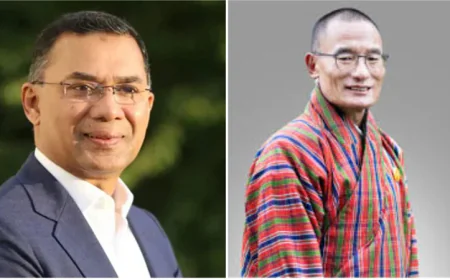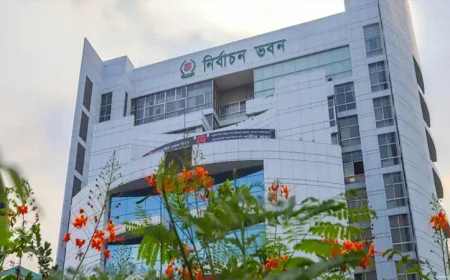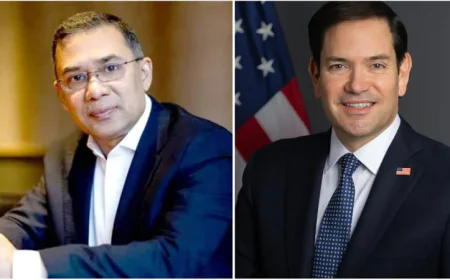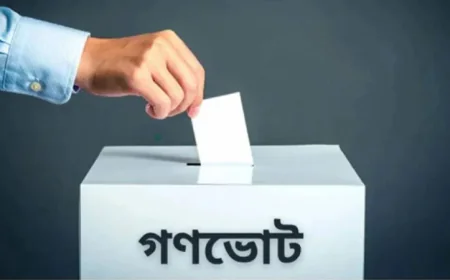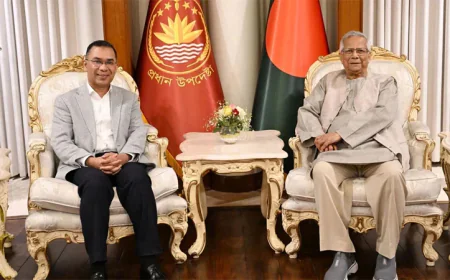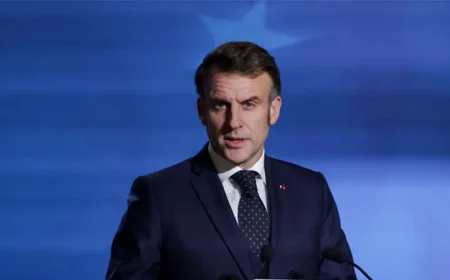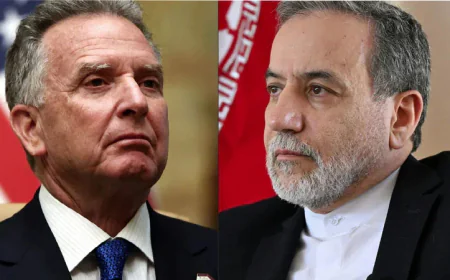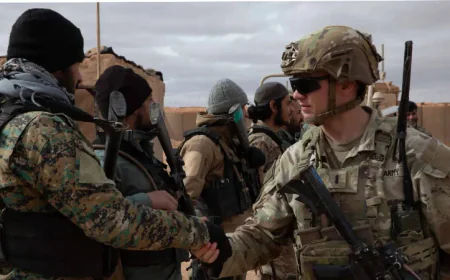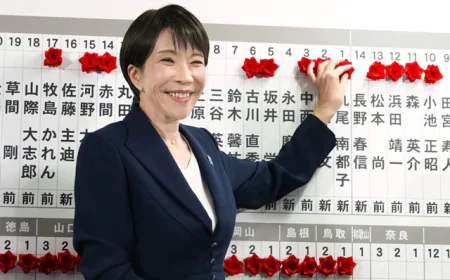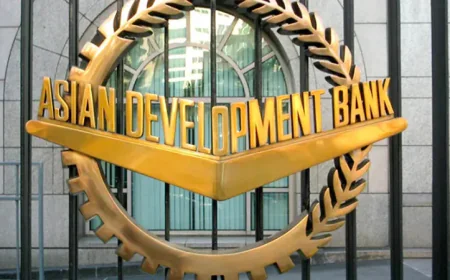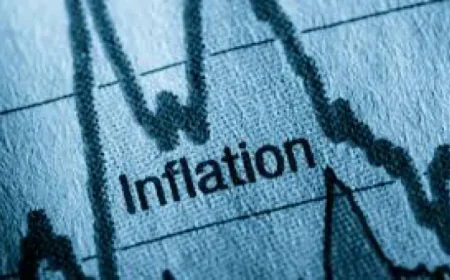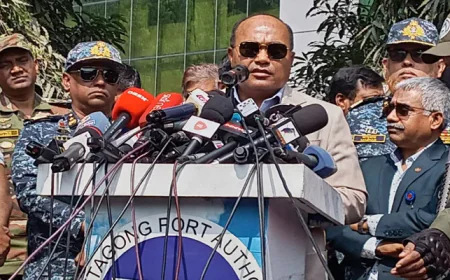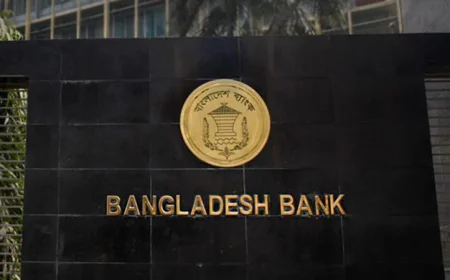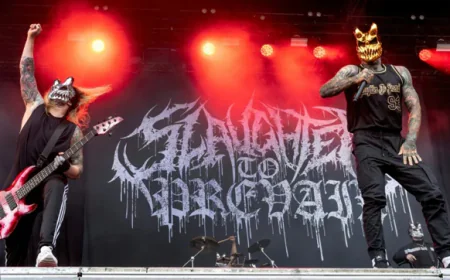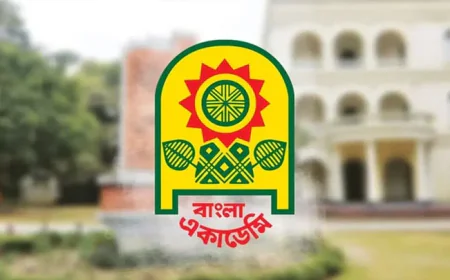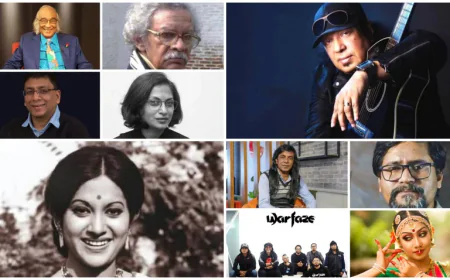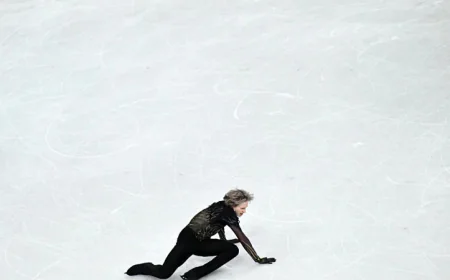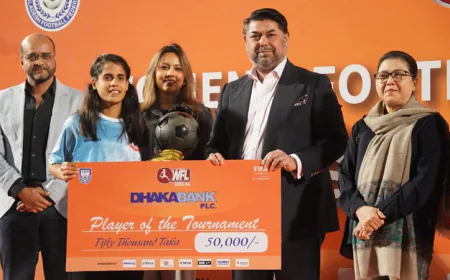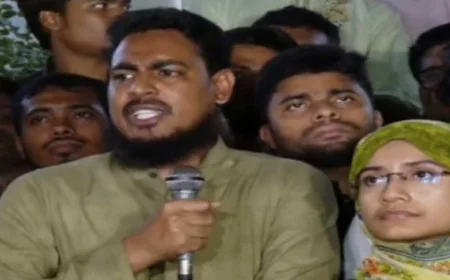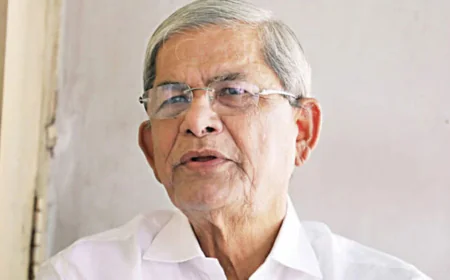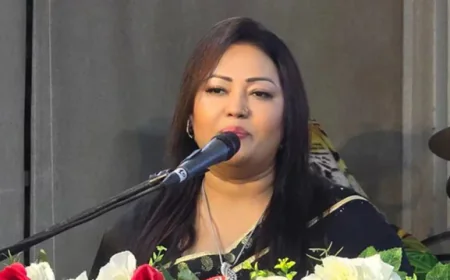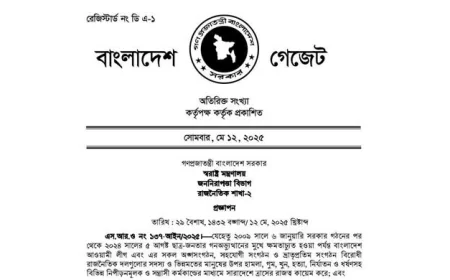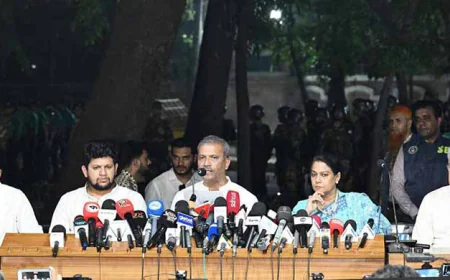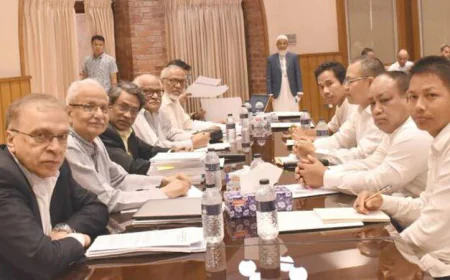Election Commission Excludes Banned Awami League from Ballot
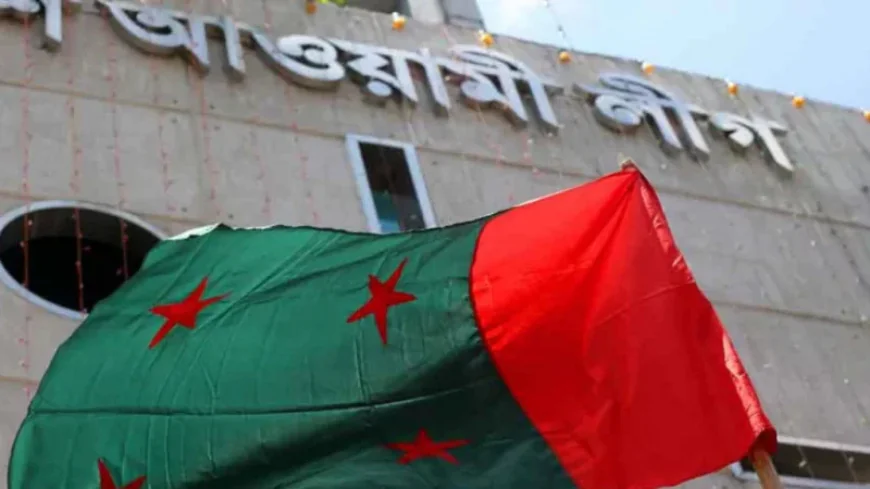
In a move that significantly reshapes Bangladesh's political scene and recalibrates the power structure, the Election Commission (EC) has suspended the Awami League’s registration, striking the country’s oldest surviving political party from the list of contenders in future elections.
The thunderclap follows a sweeping ban by the interim government — a decree that silences every chant, cancels every rally, and forbids even a whisper from the party that once claimed credit for the nation’s birth and ruled it for over two decades.
The Awami League, led by the now-deposed prime minister Sheikh Hasina, is no longer just out of power — it is outlawed, prosecuted, and cast into political limbo under accusations of crimes against humanity.
THE BAN, THE BLOW, THE SILENCE
On Monday afternoon, the Ministry of Home Affairs issued a blanket ban on all Awami League activities — online, offline, on paper, and in procession.
By nightfall, the EC had convened in Dhaka’s Nirbachan Bhaban. The verdict: registration suspended.
“The government’s ban compelled our decision,” said EC Secretary Akhtar Ahmed. “We followed the law.”
With registration No 006 (dated 03/11/2008) now dormant, the once-mighty party has been struck from the nation’s democratic framework.
The boat — its iconic election symbol — will no longer sail.
FROM KINGMAKER TO DEFENDANT
The party of nation's independence hero Bangabandhu Sheikh Mujibur Rahman, the Awami League has now been named in a war crimes tribunal. The same court that condemned Jamaat-e-Islami’s wartime atrocities is now preparing to try the Awami League for its violent crackdown on the July Uprising — a student-led rebellion that toppled Hasina’s government – in just eight months.
The tribunal’s prosecutors accuse the former premier of orchestrating massacres, cover-ups, and command-level crimes against her own people.
“Sheikh Hasina is identified as the mastermind,” Chief Prosecutor Mohammad Tajul Islam declared.
The sweeping charges — killings, shootings, body burnings — span the country’s bloodstained map from July to August 2024.
A REVOLUTION REWRITES THE FUTURE
The tide turned on Aug 5, 2024, when the streets exploded and students roared. Eight months after forming government for an unprecedented fourth straight term, Hasina was forced to step down amid public outrage after a movement to reform quotas in government jobs snowballed into a popular campaign to end her rule.
Three days later, on Aug 8, the interim administration took charge with Muhammad Yunus at the helm.
Fast forward to Sunday, and the International Crimes (Tribunals) Act was amended to allow prosecution of political parties. On Monday, the electoral hammer fell.
ERASED FROM THE BALLOT, EXILED FROM THE NATION
From 1949 to 2024, the Awami League stood as a pillar of the nation’s identity. It led the independence movement, built the republic, and governed it six times — three of those without viable opposition.
But the final chapter was written not in the ballot box, but in blood and resistance.
Critics long accused the party of ruling by manipulation — winning elections unopposed, sealing ballots before sunrise, bending the bureaucracy to its will.
In the 2024 election, it resorted to fielding dummy independents to dodge accusations of one-party rule.
Still, voter turnout sank. Legitimacy eroded. And in the fires of a student revolution, the party crumbled.
FROM LEGACY TO LIABILITY
The law that Hasina’s government once promised to use against Jamaat now turns on her own party. The same street where Ganajagaran Mancha once demanded justice for 1971 war crimes now rings with slogans condemning the Awami League.
Once, the Awami League banished its enemies. Now, it joins them.
With its registration suspended, its leaders indicted, and its voice silenced, the party that helped birth a nation must now fight for its own survival in a courtroom — if it ever hopes to return to the streets, the polls, or the pages of Bangladesh’s future.
ALL BUT SNUFFED OUT
After a meeting on Monday evening, the EC Secretary Akhtar confirmed the decision: the path to elections has been shut for one of the country’s oldest political parties, which remained in power for more than two decades across six terms.
A gazette notification issued by the commission said since the government has banned all activities of the Awami League and its associate, affiliated, and like-minded organisations under the Anti-Terrorism Act, the Commission is suspending the party’s registration (No. 006, dated 03/11/2008) as a political organisation.
Under pressure from the National Citizen Party (NCP), which was formed by student leaders of the July Uprising, as well as from Jamaat-e-Islami and other religion-based parties, the Advisory Council decided on Saturday to ban all activities of the Awami League until its trial is over.
The government issued a gazette on Sunday amending the International Crimes (Tribunals) Act, paving the way to prosecute the Awami League for “crimes against humanity” in its crackdown on the July movement.
The ban order followed on Monday afternoon.
The directive said: “Until the tribunal concludes its proceedings, all forms of publications, media activity, online and social media campaigns, processions, meetings, rallies, and conferences by the Awami League and all its affiliated, allied and like-minded organisations are hereby prohibited.”
Soon after the ban order, the EC convened a meeting at 5:45pm at the Nirbachan Bhaban, or Election Building, in the capital's Agargaon. Chief Election Commissioner (CEC) AMM Nasir Uddin chaired the meeting where the suspension of the party’s registration was finalised.
The meeting was attended, among others, by Election Commissioners Anwarul Islam, Abdur Rahmanel Masud, Senior Secretary Akhtar Ahmed, along with the CEC.
According to the Representation of the People Order (RPO), the registration of a banned political party can be revoked.
The EC introduced party registration rules ahead of the ninth parliamentary election in 2008.
Over the past 17 years, 55 parties have been registered with the commission, though the registrations of five parties, including Jamaat-e-Islami, have been cancelled for several reasons.
With the Awami League suspended, 49 parties remain on the EC’s register.
PRELUDE
Before the government issued the ban on Monday, the International Crimes Tribunal's probe agency filed a report in the afternoon, bringing five charges of "crimes against humanity" against the Awami League government in its attempt to quell the mass uprising in July and August last year..
After submitting the report, Chief Prosecutor Tajul said: “Within six months and 28 days of starting the investigation, the investigating officer probed the crimes against humanity, killings, shootings, and acts like the burning of bodies that occurred nationwide during the July Uprising. Based on the findings, the report identifies Sheikh Hasina as the mastermind and superior commander who gave the orders [for the atrocities].”
The demands for banning the Awami League had been raised by the leaders of the Anti-discrimination Student Movement from the very beginning.
The movement to remove the Awami League from the political landscape gained momentum on Thursday, following former president Abdul Hamid's departure from the country.
On Thursday night, a group of protesters led by Hasnat Abdullah, chief organiser of the NCP's southern unit, staged a sit-in outside Yunus’s official residence, State Guest House Jamuna.
The demonstration drew support from the Jamaat-e-Islami and its student front Islami Chhatra Shibir, AB Party, Islami Andolan Bangladesh, Hifazat-e Islam, and student groups affiliated with the Anti-discrimination Student Movement.
DOORS TO ELECTION SHUT
Formed on Jun 23, 1949, the Awami League spent 75 years in the political arena, retaining power for a quarter of a century. After leading the struggle for independence, the party won the election for the first time in 1973, helmed by Bangabandhu.
The party was plunged into extreme uncertainty when Shiekh Mujib and his family were killed in 1975. After spending several years abroad, Hasina’s elder daughter took charge of the party.
After a lengthy break, the Awami League won the election in 1996 under the leadership of Hasina before losing in 2001 when the BNP took over.
The party suffered another setback when Hasina was arrested during the army-backed caretaker government. But it bounced back to clinch victory in the 2009 general election.
Then, maintaining its formidable power and disregarding all criticism, the party secured a single majority in the following three elections, despite the absence of opposition parties and voters.
In 2014, when the BNP boycotted the election, the Awami League candidates won unopposed in more than half the constituencies, which never faded from the minds of many.
In the following national elections of 2018, the BNP agreed to take part, but the Awami League won, allegedly by sealing the ballots the night before the election. The Anti-Corruption Commission (ACC) is investigating the allegations after the interim government took over.
To stem the tide of criticism, the Awami League adopted a new strategy to avoid being elected unopposed in the 2024 elections.
Party leaders without nominations were allowed to run as independent candidates to ensure that Awami League candidates are not alone in any constituency. Nonetheless, the ruling party struggled to draw voters to the centres.
Despite numerous questions raised both domestically and internationally over issues like the “night vote” and low voter turnout, the Awami League remained in power.
However, following its ouster amid overwhelming dissent from students and citizens, the Awami League now faces the greatest uncertainty in its lengthy time in the political arena as the latest series of events unfolded the party’s greatest challenge yet.
